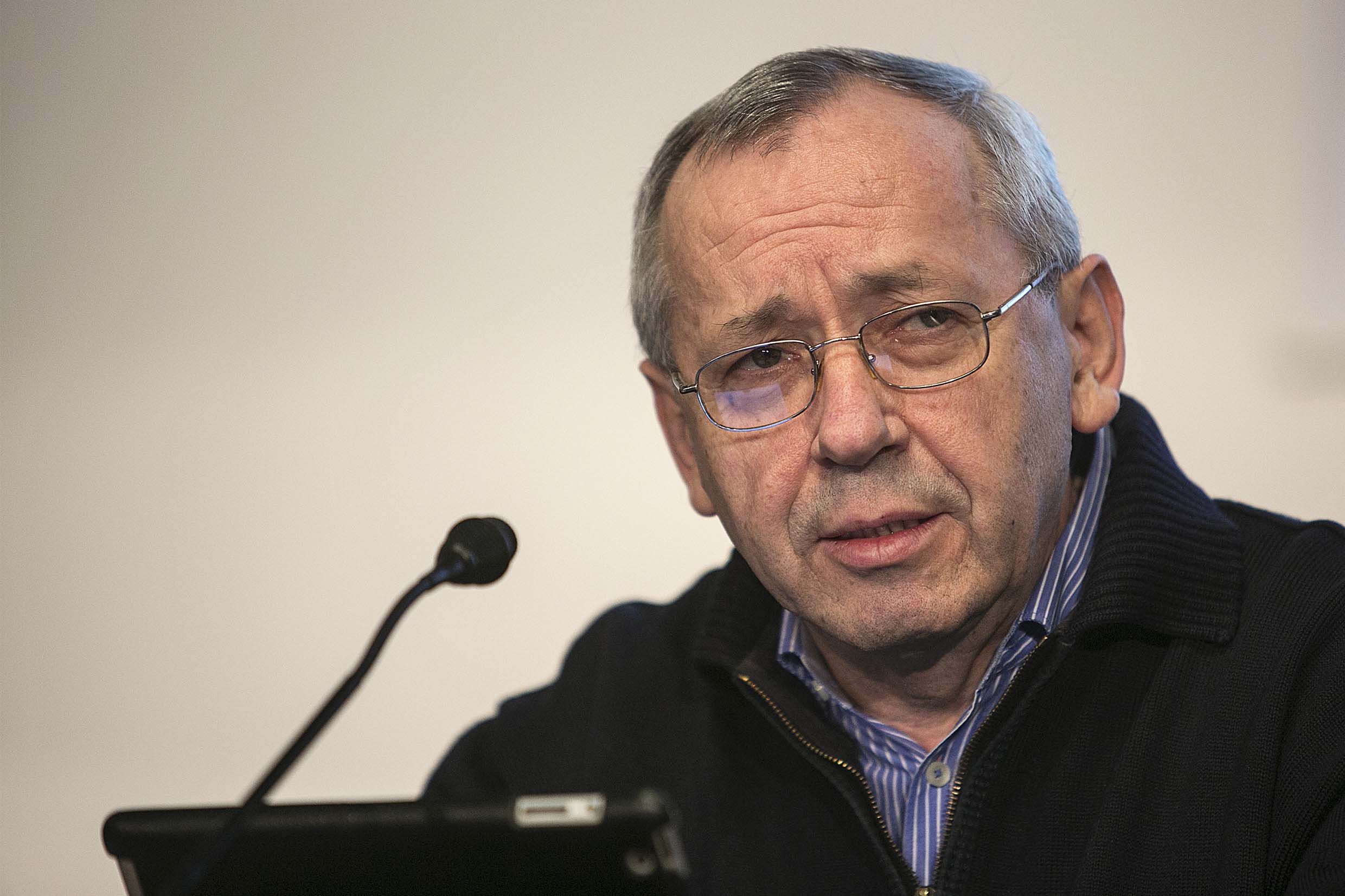Prayer
Father Marko Ivan Rupnik delved into the meaning of prayer, the first of three Lenten practices. He analysed the significance of the art of discernment, recommended by Pope Francis

What does prayer mean today, and how can we practice the art of “discernment” chosen by the Pope as the theme of the next Synod on young people? SIR turned the question to Father Marko Ivan Rupnik, Director of the Aletti Centre, who gives topical relevance to the first imperative of Lent, along with almsgiving and fasting.
Prayer is the first of three practices that Christians are called to rediscover during Lent. In your opinion, does modern man still find the time to pray, or does prayer risk becoming an outdated practice? If prayer is understood as a practice required by a given religion it could understandably become difficult and endearing, thereby losing its true meaning. This happens especially when religion leverages education to transform prayer in a mandatory practice. By praying in this way modern man fails to grasp its significance, except for minor, superficial psychological effects related to certain forms of what could be described as self-pacification. This is not what prayer means in Christianity. Christian prayer is the expression of life received as a gift through baptism.
Prayer means to perceive oneself in Christ, in unity with Him. To pray means to live one’s life relating to the Father through Christ, in the Holy Spirit that constantly shapes our filial mentality.
It’s a dialogical state, it overcomes isolation. In baptism we are grafted into the Body of Christ, and in the Holy Spirit filial life is bestowed upon us. In our faith at the onset of baptism our humanity is rooted in Christ’s humanity. This does not happen through individual, subjective practice resulting from self-suggestion or concentration. It occurs through veritable, objective reality found in the Sacraments. There ensues that also personal prayer, such as ecclesial prayer, stems from the sacramental reality of our humanity in Christ. It is an expression of our life in Christ. Before being into Christ, prayer is supplication and plea for mercy.
In the latest Angelus Prayer the Pope said that prayer consists in fighting against the spirit of evil, that is, against the devil. How should discernment be carried out, and not only during the Lenten period? The Lord Jesus Christ became man, and thus He communicates with man through human language. In the same way the Word of God is communicated through human words and in Christ the entire universe of God, the communion of the Divine Persons, is communicated in the humanity of the Son. This means that
Discernment is the art of understanding God, and since God communicates through our thoughts and feelings, it’s up to us to identify them.
Thoughts can come from different sources but , as we are taught by our spiritual masters, we need to identify the spirit that breathes through them. It all depends on the fundamental direction of our heart. A filial heart is directed towards the Father. The enemy of man’s redemption will seek to corrupt him with an attack behind his back, by insinuating doubts, increasing the hurdles along the way, stripping meaning from human actions, thoughts, steps, relationships and gradually leading man to focus on himself. Thoughts and feelings are bound together according to the direction they are leading us towards: they could lead us towards ever-true communion or drive us to withdraw into ourselves. Spiritual struggle means reading into ourselves in terms of communion or isolation, individualism or openness. Self-fear or self-giving. That is, to understand the significance of our personal joy.
When Francis addresses the subject of prayer he often invites us to refer to God as our “father.” How deep is the need for paternity in what the Holy Father has often described as “a society of orphaned people”? It could be said that the past centuries have made spiritual life very problematic because God was primarily addressed through philosophical lenses, and Christ was understood in terms of the perfect man, the role model of humanity. But as we read in the Gospel of John (8:19) Christ says: “You do not know me or my Father. If you knew me, you would know my Father.” This means that relationships are the realm of understanding and that intelligence is agape, love.
If God is not experienced as Father, with unconditional love for the son, even reciting Our Father prayer will become difficult.
We identify as sons when we are seated around a table speaking to our father. We identify as sons when we know the origination and the final destination; when love is not the final goal but the point of departure, the coordinates of human existence and the feast of fulfilment. The Father is the guarantor of unconditional love, he is the harbour waiting for us, the ontological – and thus existential – security. There is a desperate need for all these realities today.
Discernment is also the theme of the upcoming Synod. Young people may find it even more difficult to practice than adults. Are there mentors that could teach them? I see that young people are seeking life and we are still dazzled by methods, by pastoral approaches to attract their interest, to draw close to them. But in my opinion they immediately realise that it consists in a methodology. Love is not a methodology but our way of life that reveals the content of faith.
Young people are especially sensitive to discernment, but since it implies an understanding of God we must lead young people to meet God, to meet Christ, to discover the existence of the Holy Spirit, gift of a special life, that blows into the sails of the whole of humanity.
I don’t think it possible to know Christ other than in mercy, in the sacrament of forgiveness, a strong embrace that warms our hearts and opens new horizons.